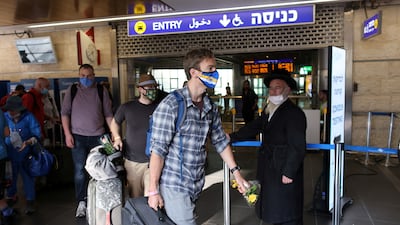Israel unveiled plans on Thursday to welcome visitors who are vaccinated against Covid-19, with tourists set to arrive en masse for the first time since the start of the pandemic.
Under proposals published by Prime Minister Naftali Bennett’s office, foreigners will be granted entry if they have been fully vaccinated with shots made by AstraZeneca, Johnson & Johnson, Moderna, Pfizer or Sinovac.
People who were inoculated more than six months ago are ineligible under the new rules, which will come into force on November 1. Visitors who have recently recovered from coronavirus will be allowed to enter.
The change will end nearly 20 months of isolation for Israel and the Palestinian territories. The Israeli government banned tourists on March 12, 2020, a day after the World Health Organisation declared the spread of coronavirus a pandemic.
Palestinians living in the occupied West Bank and East Jerusalem, as well as Gaza, have their borders controlled by Israel.
Reopening to tourists ahead of Christmas is expected to be a boon to those working in the Christian tourism sector.
Communities in the West Bank city of Bethlehem, believed to be Jesus’ birthplace, will likely see thousands of tourists, along with the Israeli city of Nazareth.
The tourism plan is due to be voted on by Israeli cabinet ministers in the coming days. Similar proposals to welcome visitors from July 1 were scrapped due to a rise in coronavirus cases.
Since May, a small number of tourists have periodically been allowed to join group tours.
Some 34,500 such visitors entered Israel last month, according to the country’s tourism ministry, compared with 405,000 tourists in September 2019.
Other foreigners who have been granted entry during the pandemic include close relatives of Israeli residents, who have had to apply for special permission on behalf of their family members.
In recent weeks Israel has been administering third doses of the Pfizer vaccine in a bid to tackle a fourth wave of coronavirus infections. Proof of recent vaccination or recovery from the virus is necessary for entry into public places such as bars and restaurants.
Israel is currently registering about 1,200 new virus cases daily, compared with nearly 10,000 in early September.
Health officials have recorded more than 8,000 coronavirus deaths in Israel, home to nine million, and more than 4,600 among the five million Palestinians in Gaza and the West Bank.


